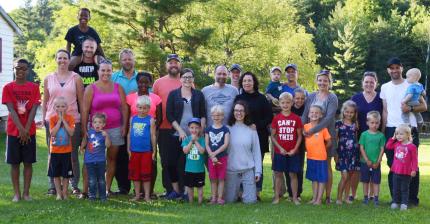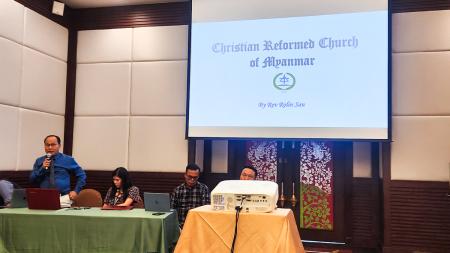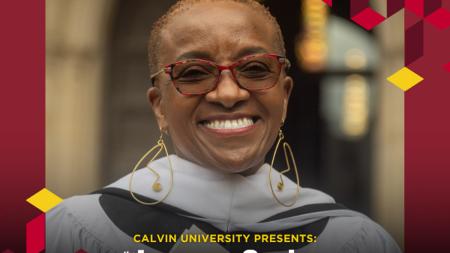Studying Links between Paganism and Christianity

A group of Ontario pastors gathered several times over the past year to study the Roman Empire and what the early years of Christianity can teach them about the challenges facing the faith today.
With the help of a Sustaining Pastoral Excellence peer learning grant provided through Pastor Church Relations, this group of pastors met for discussions, read books, and took time away with their families to sort through what they learned about paganism — the spiritual bedrock of the Roman empire — and early Christianity. They discussed how they can apply what they learned in their ministry and especially in their preaching.
Peer Learning Group Grants offer pastors an opportunity to gather for learning, support, prayer, encouragement, and fellowship. Pastors are free to plan all aspects of their time together: who the group members will be, what topic they’ll pursue, when to meet, what books they’ll read, and if they’d like to attend a conference, have a retreat, or neither. Since the groups create their own plan, no two groups are alike.
“The inspiration for our topic could be put this way: The Christian culture that used to exist in the West is rapidly fading away,” said Nate Van Denend, coordinator of the group and pastor of First CRC in Chatham, Ont.
The pastors came to this topic out of increasing concern for where the church is today. They feared — with good reason — that a new form of paganism is at work.
“We live in a world in which writing down on a job application that you are a member of a church is now more likely to hinder rather than help your case,” said Van Denend.
“This leads to the question ‘What kind of culture will replace the Christian culture?’ There was a brief time when people thought an atheistic culture would replace the Christian culture, but this has not proved to be true.”
Instead, “even in our congregations,” said Van Denend, “people are interested in all kinds of different spiritual practices: yoga, mindfulness, meditation, etc. . . . The spiritual realm of ghosts and powers and 'the universe' captures their attention ….This certainly is not atheism but sounds more like paganism.”
So, to help them gain some perspective on our present reality, the group decided to study the way that early Christians interacted with and were perceived by their pagan neighbors.
And three goals they came up with were (1) to be able to recognize the “pagan gods” they encounter in their ministries and help people identify them, (2) to be able to preach the Word that opposes the gods of today’s world, and (3) to better understand the pull these gods or idols have on their own hearts.
The peer group read and discussed various books, including The Greco-Roman World of the New Testament Era by James Jeffers; Destroyer of the Gods by Larry Hurtado; The Other Worldview by Peter Jones, and The Benedict Option by Rod Dreher. Some members of the group also watched and discussed with others a YouTube video featuring a Harvard Divinity School conference on “The Future of ‘Spiritual but Not Religious.’”
Tracing and learning more about patterns of the past, as the group members suspected, provided some disturbing insights.
“It was surprising to see the overlaps between paganism in the first few centuries after Christ and in our contemporary situation,” said Van Denend.
Ancient paganism emphasized the closeness of the gods — as one author put it, "Paganism is finding the sacred in the immanent."
In their research and discussions, he said, they came to see that “human desires are deified in paganism and rule, not unlike today's celebration of human desire.”
In addition, they saw other links from two millennia ago. “Ancient paganism was also inclusive and tolerant . . . multicultural even. As long as you acknowledged the other gods, you were free to worship your gods,” said Van Denend.
In our world, “Christianity gets caught in the crosshairs of this issue because Christians refuse to acknowledge the legitimacy or authority of other gods,” said Van Denend.
Finally, they came to realize that pagan religion manipulates and attempts to control the spiritual forces in the world.
“We see this today when people talk about ‘karma’ — doing good things in the hope [or manipulation] that somehow the universe will give good things back,” said Van Denend.
Chris deWinter, pastor of Trinity CRC in St. Catharines, Ont., was especially interested in both learning more about and being reminded of how the early Christian church responded to the pagan culture around it.
“Interestingly, to me, I drew a great appreciation for the role that holiness and suffering played in the early church’s response to paganism — especially the deep belief that the Holy Spirit really does make holiness possible in the lives of believers and that suffering for the gospel (‘sharing in the sufferings of Christ’) is an eternal joy.”
In the course of their study, Andrew Vis, pastor of Orangeville, (Ont.) CRC, came to realize that people today are much more spiritual than he had thought. But he doesn’t mean this in a good way.
In today’s world, many people hold spiritual beliefs that do not honor the God who created them. Instead of turning to God for support, they look for good luck charms. For instance, he said, “many so-called ‘secular’ people are engaged in deliberate spiritual practices” — for example, when “New England Patriots quarterback Tom Brady uses ‘protection stones’ before the Superbowl.”
Josh Tuininga, pastor of Wallaceburg (Ont.) CRC, was also troubled by what he discovered: “I have learned to think about our culture in a new way and see how people are under the tyranny of the devil. Paganism (idolatry) has a strong pull on our North American culture, and as a pastor, I need to help people follow Jesus in this increasingly pagan culture.”
Andrew Zomerman, pastor of Dresden (Ont.) CRC, appreciated how the peer group’s reading and discussions “drew out some thoughts and practices that our contemporary society accepts and pointed out that they are some of the same pagan and idolatrous practices that Christians and society have been struggling with for centuries.”
Henry Meinen, pastor of Bethel CRC in Listowel, Ont., came to see — and wants to find ways to preach and teach about this — that today’s culture is not Christian or even neutral in its stance to faith.
“We’re living in an anti-Christian culture,” said Meinen. “This can be a scary realization. However, it was also very encouraging to be reminded that good and fruitful ministry can be done in such a culture, since that was the climate the early church found itself in. Many came to believe in Christ in those early years.”


